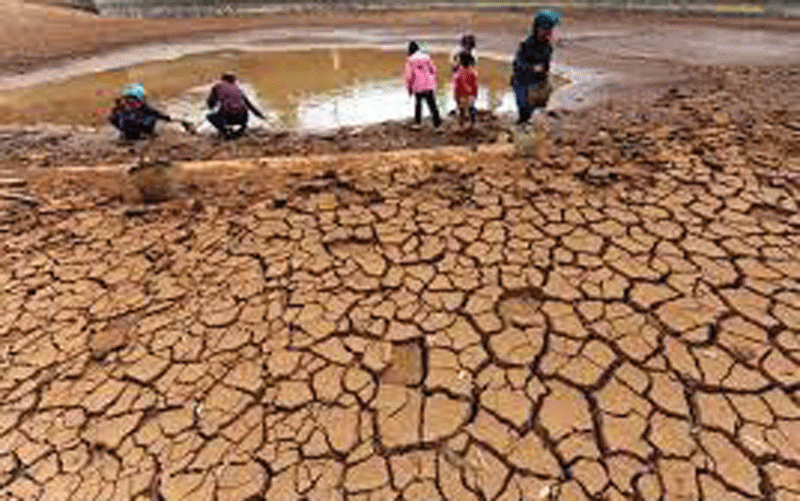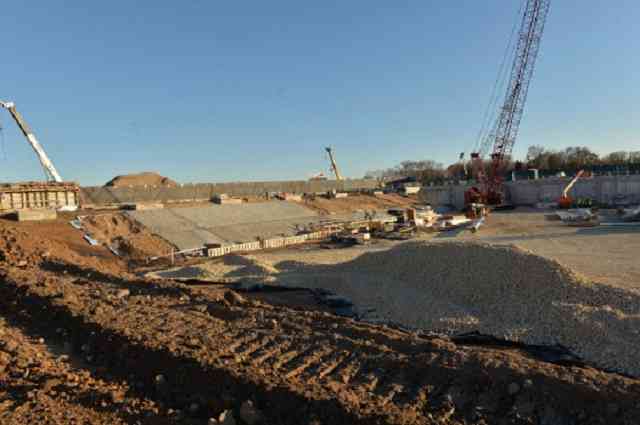
A SERIOUS shortage of pastures has brought misery to villagers in Matabeleland South’s Matobo district as the effects of the El-Nino induced drought begin to be felt across the country.
The shortage of pastures has been further worsened by the drying up of several water points across the district.
Matabeleland South is one of the provinces worst affected by the drought following a poor rainfall season, which was characterised by extremely hot and dry weather conditions.
The situation has left many people and livestock in dire straits.
A visit by a Sunday Southern Eye crew to Matobo established that some villagers in areas such as Gohole, Injadamu, Sun Yet Sen and Tshelanyemba were watching helplessly as their prime investment was being decimated by the lack of pastures.
Water sources in the area are drying up, trees shedding leaves, some grazing land has become dusty with little or no grass at all and other areas, which used to be grazing land have been occupied by land seekers.
Gogo MaGodonga (90) of Sun Yet Sen bemoaned the lack of grazing land in the area.
“We were here before 1968 and we had lots of grazing land but now, we have no pastures,” she said.
- I will definitely win 2023 elections: Mwonzora
- We will rule forever: ED says
- Measles death toll hits 650
- Govt challenges youths to participate in tourism
Keep Reading
“The area has new homesteads that were built in what used to be our grazing areas.
“There is a serious drought in the area.
“This does not affect only the cattle, but also our goats and donkeys, even us, the people.”
MaGodonga said she recently lost a cow due to starvation.
“I lost my cow which was about to give birth, this was because of the drought, and lack of pastures,” she said.
“I had no money to buy stockfeed.
“I am not the only one, but almost everyone here in the community of Sun Yet Sen is affected.”
She said what further worsened their plight was the recent explosion in the population of ticks due to lack of dipping services.
“We also lost a lot of calves in the area due to ticks,” she said.
“The cows stopped breastfeeding the calves as their breasts were affected by tick bites.”
A headman from Gohole, Mandla Banda, said the situation was dire.
“This is of concern to the community and has made people try to do paddocking,” he said.
“We hope this will help as we are facing a serious drought.”
Khulu Moyo (89) from Injadamu criticised villagers, who left their cattle to graze the whole night. saying this has caused the area to become dusty.
“Long ago, we used to keep our cattle in the kraals, especially at night even during winter,” Moyo said.
“We would keep them locked up and this was a way of saving the grass
“But then now, people are no longer doing that and they leave their cattle to graze all night and day and the result is that the area no longer has pastures.”
Moyo urged fellow villagers to properly fence off their fields and preserve the maize stalks.
“Long ago, we would make sure we fenced the fields properly and kept all maize stalks (amahlanga omumbu), which we then gave to the cattle during the August to September dry season," he said.
Another villager, Mabutho Ncube said: “There is no grass here in Maphisa. Cattle are feeding on the soil.
“We have lost a lot of cattle because of a shortage of pastures.
“Those who can manage, buy stockfeed but for some of us, we will lose our herds.”
Whenever there is drought, the government urges villagers to destock to avoid losses due to cattle deaths.
However, destocking is a painful exercise for many who prefer to see their herds multiply as cattle are seen as a status symbol.
In 2019, as much as 21 000 beasts succumbed to drought related deaths in Matabeleland South and North, according to reports quoting the Famine Early Warning Systems Network (FEWS NET).
It has since emerged that some conmen have descended in drought-hit areas to influence villagers to sell their livestock for a song.
According to the World Meteriological Organisation (WMO), El Nino occurs on average every two to seven years, and typically lasts nine to 12 months.
It is a naturally occurring climate pattern associated with warming of the ocean surface in the central and eastern tropical Pacific Ocean.
The WMO says the current El Nino has exacerbated drought in south America and has also contributed to drier and warmer conditions in parts of southern Africa.









